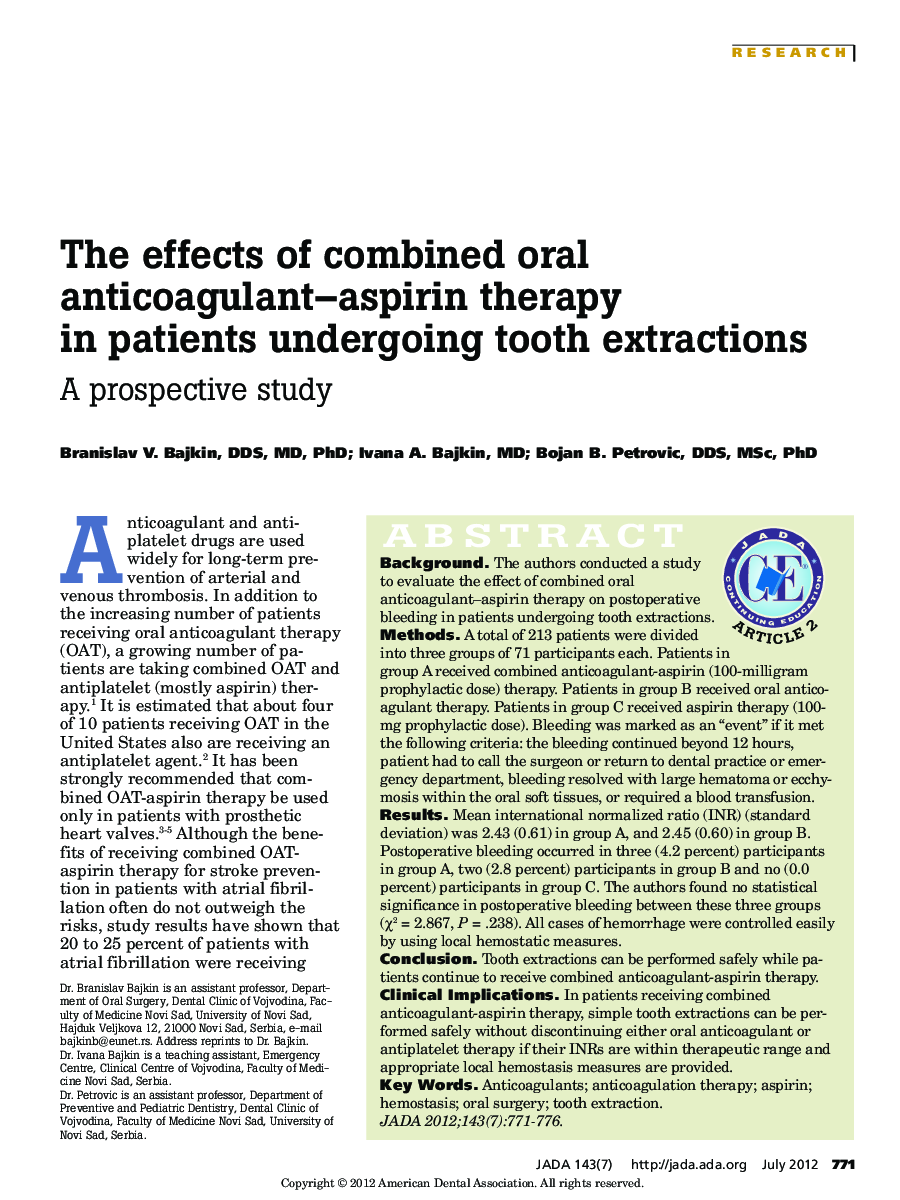| Article ID | Journal | Published Year | Pages | File Type |
|---|---|---|---|---|
| 3137772 | The Journal of the American Dental Association | 2012 | 6 Pages |
ABSTRACTBackgroundThe authors conducted a study to evaluate the effect of combined oral anticoagulant–aspirin therapy on postoperative bleeding in patients undergoing tooth extractions.MethodsA total of 213 patients were divided into three groups of 71 participants each. Patients in group A received combined anticoagulant-aspirin (100-milligram prophylactic dose) therapy. Patients in group B received oral anticoagulant therapy. Patients in group C received aspirin therapy (100-mg prophylactic dose). Bleeding was marked as an “event” if it met the following criteria: the bleeding continued beyond 12 hours, patient had to call the surgeon or return to dental practice or emergency department, bleeding resolved with large hematoma or ecchymosis within the oral soft tissues, or required a blood transfusion.ResultsMean international normalized ratio (INR) (standard deviation) was 2.43 (0.61) in group A, and 2.45 (0.60) in group B. Postoperative bleeding occurred in three (4.2 percent) participants in group A, two (2.8 percent) participants in group B and no (0.0 percent) participants in group C. The authors found no statistical significance in postoperative bleeding between these three groups (χ2 = 2.867, P = .238). All cases of hemorrhage were controlled easily by using local hemostatic measures.ConclusionTooth extractions can be performed safely while patients continue to receive combinedanticoagulant-aspirin therapy.Clinical ImplicationsIn patients receiving combined anticoagulant-aspirin therapy, simple tooth extractions can be performed safely without discontinuing either oral anticoagulant or antiplatelet therapy if their INRs are within therapeutic range and appropriate local hemostasis measures are provided.
